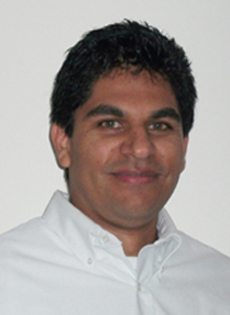
Church, the environment and peace
Monday, April 26, 2010
*Nelson Araque
The leadership taken by the Catholic Church in terms of the environment is evident in Pope Benedict XVI’s message for 2010 World Day of Peace, “If You Want to Cultivate Peace, Protect Creation.” In it, the pope recalls the long tradition of Catholic social teaching regarding the environment, from the Second Vatican Council to the documents of John Paul II.
In early 1990, John Paul II wrote: “There is a growing awareness that world peace is threatened … also by a lack of due respect for nature.” He added that “ecological awareness, rather than being downplayed, needs to be helped to develop and mature, and find fitting expression in concrete programs and initiatives.” This statement recalls Octogesima Adveniens from 1971, where Paul VI viewed the environment as one of the new social problems.
For Pope Benedict as well as for his predecessors, the ecological crisis is “closely linked to the notion of development itself and our understanding of man in his relationship to others and to the rest of creation.”
In the book of Genesis, human beings are commanded to “fill the earth” and to “have dominion,” but this commandment has been understood in the wrong way and the consequences of it can be visible in the actual rampant destruction of the environment symbolized in such realities as climate change, desertification, the deterioration and loss of productivity in vast agricultural areas, the pollution of rivers and aquifers, the loss of biodiversity, the increase of natural catastrophes and the deforestation of equatorial and tropical regions.
This destruction is also the consequence of our selfishness and our refusal to accept the environment, the creation, as God’s gift for all. As Pope Benedict says in Caritas in Veritate, “the use we make of it entails a shared responsibility for all humanity, especially the poor and future generations.”
“Exercising dominion” over the creation commanded by God is to be understood as being stewards, caretakers, and good administrators of the creation, of the environment. The dominion over the earth “was not a simple conferral of authority, but rather a summons to responsibility.”
This responsibility involves future generations, as Pope Benedict said in Caritas in Veritate and John Paul II said in both the “Compendium of the Social Doctrine of the Church” and in his encyclical, Centesimus Annus. Pope Benedict says the immediate benefit we derive from natural resources today should not have a negative impact on living creatures, human and not, present and future. Second, “the international community has an urgent duty to find institutional means of regulating the exploitation of non-renewable resources, involving poor countries in the process, in order to plan together for the future.”
In terms of globalization, the pope says this provides “a historic opportunity to develop a common plan of action aimed at orienting the model of global development towards greater respect for creation and for an integral human development inspired by the values proper to charity and truth.”
In his 2010 message, Pope Benedict also tells us what should be the real motivation for fighting against ecological degradation. It is “the quest for authentic world-wide solidarity inspired by values of charity, justice and the common good.”
He also says, “Technology in this sense is a response to God’s command to till and keep the land (cf. Gen 2:15) that he has entrusted to humanity, and it must serve to reinforce the covenant between human beings and the environment, a covenant that should mirror God’s creative love.”
This sense of global solidarity should lead us to take more responsibility for the ecological crisis at our own level. In that sense, from my position as a theology teacher, I have the responsibility to raise awareness among my students that creation, that free gift given by God, needs them to be more responsible in their decisions toward the environment. For example, I insist on recycling every sheet of used paper, following the recycling campaign at school. Sometimes my students laugh about it, but as I say to them, “one sheet from you, and another from me, count; every single sheet counts.”
Building peace through the protection of the environment, as Pope Benedict asks in his 2010 message, would become easier if “all acknowledge the indivisible relationship between God, human beings and the whole of creation.”


Comments from readers
I agree with Br. Richard when he said that seems that "everyone has a different method of trying to act ecologically." In that sense, our responsibility as teachers should be to give to our students some sense of acknowledgement on what other people are doing and be engaged in simple actions with significant results.
Michelle said: "A powerful ritual reminder for us occurs when the presider at Eucharist first offers the bread and wine as fruit of the earth and work of human hands" I think this phrase reflects the balance that should exist between humans and the environment. The Earth itself is a gift from God. It is for our use, but this use should be understood in a sustainable way for the benefit of the future generations